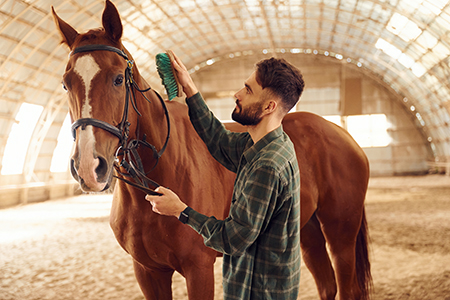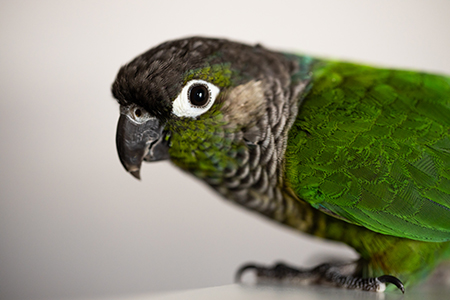 Animal Welfare, Shelter & Rescue
Animal Welfare, Shelter & Rescue  No Comments
No Comments Plane Loaded with 53 Rescue-Transport Dogs Crash-Lands, No Serious Injuries
On Tuesday, a twin-engine plane packed with 53 rescue dogs enroute from Louisiana to a humane society in Wisconsin crash-landed just short of its destination at a golf club in Pewaukee, Wisconsin. It was a skillful emergency landing, and thankfully, there were only minor injuries inside the plane. Outside, snow kept people off the golf course, so the only casualty was a small tree taken out by the landing.
The story has garnered local and national notoriety and the destination shelter, Humane Animal Welfare Society (HAWS), reported hundreds of inquiries about the dogs, which means they’ll all be adopted. So – from certain disaster to hunky-dory-happily-ever-after, yes? Maybe not. The primary question remains: are loosely regulated rescue pet transports appropriate, humane, or even safe ways to deal with surplus pets? The fact is, of all the sources of dogs available to the public, these are among the most challenging because they have a demonstrable record of significant health and behavioral problems.
Concern over disease and parasites in rescue imports is often dismissed or even belittled by rescue activists, though it’s maddening to the scientists and agencies that are forced to deal with the fallout (HAWS was quarantined a few years ago when South Korean rescue imports brought canine brucellosis with them – a disease that can utterly destroy breeding programs). Canine rabies infection is fatal without post-exposure treatment, but even if exposure doesn’t result in infection, it often causes a follow-up investigation and cleanup that costs a fortune. But rabies and brucellosis are just two of many diseases found in unvetted pet transports – and many of these are not endemic to their destination sites. Importing dogs from foreign countries can put US agriculture at risk with diseases such as African swine fever, which has killed millions of hogs worldwide.
If you are adopting a pet, we urge you to seek out locally sourced dogs and cats in need of permanent, loving homes. Rescue transport may get some great headlines (just follow how this story is being covered elsewhere!), but the resources that go into it would be much better spent solving surplus and homeless pet issues at their source, via outreach, education, improving animal services, and providing low-cost vaccination and spay & neuter services.
Resources
★ NAIA Leads Appeal for Healthy Dog Import Resources for USDA
★ Wisconsin animal shelter flooded by ‘hundreds’ of offers to adopt dogs who survived plane crash
★ What Imported Dogs have to do with African Swine Fever
★ Notice of Temporary Suspension of Dogs Entering the United States from Countries Classified as High Risk for Dog Rabies



